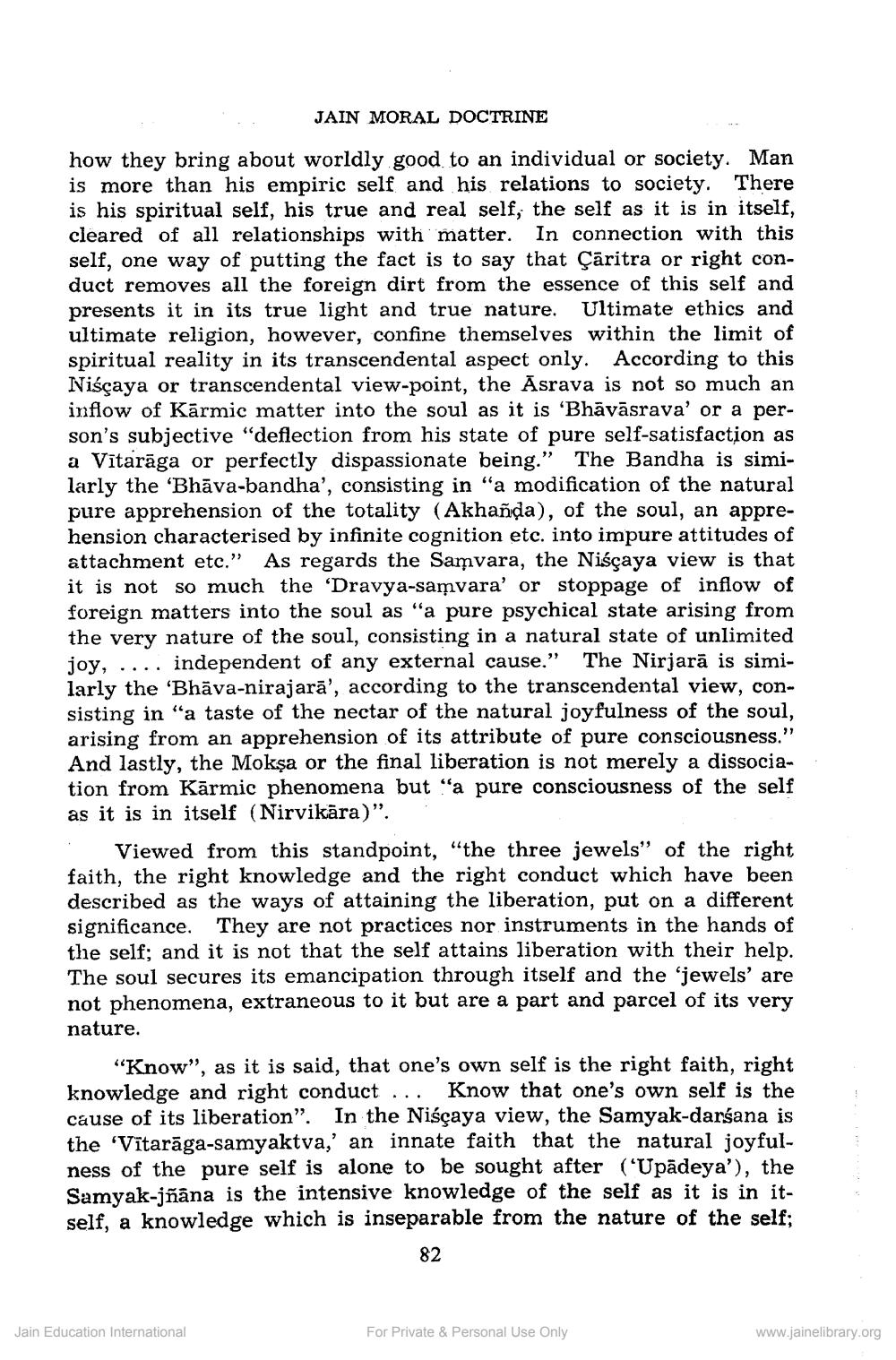________________
JAIN MORAL DOCTRINE
how they bring about worldly good to an individual or society. Man is more than his empiric self and his relations to society. There is his spiritual self, his true and real self, the self as it is in itself, cleared of all relationships with matter. In connection with this self, one way of putting the fact is to say that Çaritra or right conduct removes all the foreign dirt from the essence of this self and presents it in its true light and true nature. Ultimate ethics and ultimate religion, however, confine themselves within the limit of spiritual reality in its transcendental aspect only. According to this Niśçaya or transcendental view-point, the Asrava is not so much an inflow of Karmic matter into the soul as it is 'Bhāvāsrava' or a person's subjective "deflection from his state of pure self-satisfaction as a Vitaraga or perfectly dispassionate being." The Bandha is similarly the 'Bhāva-bandha', consisting in "a modification of the natural pure apprehension of the totality (Akhañḍa), of the soul, an apprehension characterised by infinite cognition etc. into impure attitudes of attachment etc." As regards the Samvara, the Niśçaya view is that it is not so much the 'Dravya-samvara' or stoppage of inflow of foreign matters into the soul as "a pure psychical state arising from the very nature of the soul, consisting in a natural state of unlimited joy, .... independent of any external cause." The Nirjara is similarly the 'Bhāva-nirajarā', according to the transcendental view, consisting in "a taste of the nectar of the natural joyfulness of the soul, arising from an apprehension of its attribute of pure consciousness." And lastly, the Mokşa or the final liberation is not merely a dissociation from Karmic phenomena but "a pure consciousness of the self as it is in itself (Nirvikāra)".
Viewed from this standpoint, "the three jewels" of the right faith, the right knowledge and the right conduct which have been described as the ways of attaining the liberation, put on a different significance. They are not practices nor instruments in the hands of the self; and it is not that the self attains liberation with their help. The soul secures its emancipation through itself and the 'jewels' are not phenomena, extraneous to it but are a part and parcel of its very
nature.
"Know", as it is said, that one's own self is the right faith, right knowledge and right conduct Know that one's own self is the cause of its liberation". In the Niśçaya view, the Samyak-darśana is the 'Vitaraga-samyaktva,' an innate faith that the natural joyfulness of the pure self is alone to be sought after ('Upādeya'), the Samyak-jñāna is the intensive knowledge of the self as it is in itself, a knowledge which is inseparable from the nature of the self;
82
Jain Education International
For Private & Personal Use Only
www.jainelibrary.org




